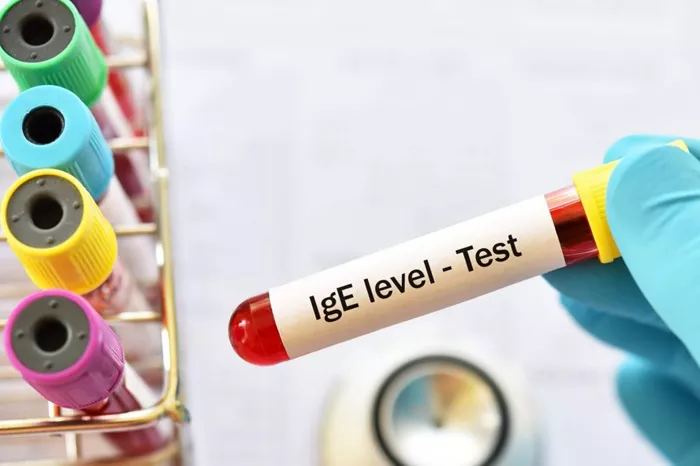Mental health is a critical aspect of our overall well-being, influencing how we think, feel, and act. One severe mental health event that garners much attention is a mental breakdown. This article delves into the question of can a mental breakdown change personality, exploring various facets of this complex interaction.
Understanding Mental Breakdowns
A mental breakdown, often referred to as a nervous breakdown, is not a clinical term but a colloquial way of describing a period of intense mental distress. During this period, an individual may feel unable to function normally in their daily life. The term encompasses a range of symptoms that can vary widely from person to person, including severe anxiety, depression, panic attacks, and even dissociation. The underlying causes can be diverse, including overwhelming stress, trauma, significant life changes, or chronic mental health conditions.
Symptoms and Indicators
Symptoms of a mental breakdown can manifest physically, emotionally, and behaviorally. Common symptoms include:
- Intense feelings of anxiety or panic
- Persistent sadness or depression
- Severe mood swings
- Extreme fatigue or insomnia
- Difficulty concentrating
- Social withdrawal
- Physical symptoms such as headaches, stomachaches, or chest pain
These symptoms indicate that an individual is experiencing a significant level of distress that impairs their ability to function in daily life.
See Also: 8 Mental Disorders That Cause Memory Loss
Personality and Its Components
Personality refers to the characteristic patterns of thoughts, feelings, and behaviors that make an individual unique. It is shaped by a combination of genetic, environmental, and social factors. Key components of personality include:
Traits: Enduring characteristics that influence behavior, such as extraversion or introversion.
Temperament: The innate aspect of personality that involves an individual’s emotional responses.
Character: The set of moral and ethical values that guide behavior.
Personality is generally considered stable over time, but it can evolve due to significant life experiences or changes in one’s environment.
The Connection Between Mental Breakdowns and Personality Changes
A mental breakdown can be a profoundly transformative experience, potentially altering an individual’s personality. Here are some ways this can happen:
Psychological Impact
The intense emotional turmoil associated with a mental breakdown can lead to significant shifts in how an individual perceives themselves and the world around them. For instance, a person who experiences severe anxiety or depression may become more cautious, withdrawn, or fearful. Conversely, some may emerge from a breakdown with a newfound sense of resilience and strength, having navigated through their darkest moments.
Behavioral Changes
Behavioral changes are common following a mental breakdown. These changes can be adaptive or maladaptive, depending on the individual’s coping mechanisms and support systems. For example, someone might develop healthier habits such as regular exercise, mindfulness practices, or seeking therapy. On the other hand, some individuals may turn to substance abuse or other harmful behaviors as a way to cope with their distress.
Neurobiological Factors
Mental breakdowns can have a neurobiological impact, affecting brain chemistry and function. Prolonged stress and trauma can lead to changes in the brain’s structure and neurotransmitter systems. These changes can influence mood, cognition, and behavior, potentially leading to long-term personality changes.
Case Studies and Research Findings
Several studies and case reports have documented instances of personality changes following a mental breakdown. For example, research on post-traumatic stress disorder (PTSD) has shown that individuals who experience severe trauma can exhibit significant changes in personality traits such as increased irritability, hypervigilance, or emotional numbness. Similarly, studies on depression and anxiety disorders have found that chronic mental health conditions can lead to alterations in personality, such as increased neuroticism or decreased extraversion.
Positive Personality Changes
Not all personality changes following a mental breakdown are negative. Some individuals report positive transformations, such as increased empathy, greater emotional depth, and a stronger sense of purpose. These changes can result from the personal growth and self-awareness that often accompany the process of recovery. For instance, someone who has overcome a severe bout of depression may develop a greater appreciation for life’s small joys and a deeper understanding of others’ struggles.
Negative Personality Changes
However, it is also possible for a mental breakdown to lead to negative personality changes. Chronic stress and unresolved trauma can exacerbate negative personality traits or create new ones. For example, a person who previously had a stable mood may become more prone to irritability or anger. In severe cases, individuals might develop personality disorders, such as borderline personality disorder or avoidant personality disorder, which can significantly impair their ability to maintain healthy relationships and function in society.
Therapeutic Interventions and Recovery
Recovery from a mental breakdown often involves a combination of therapeutic interventions. These may include:
Psychotherapy: Various forms of therapy, such as cognitive-behavioral therapy (CBT), dialectical behavior therapy (DBT), and psychodynamic therapy, can help individuals understand and address the underlying causes of their breakdown and work towards healing.
Medication: In some cases, medications such as antidepressants, anxiolytics, or antipsychotics may be prescribed to manage symptoms and stabilize mood.
Support Groups: Connecting with others who have experienced similar challenges can provide valuable support and reduce feelings of isolation.
Lifestyle Changes: Incorporating healthy habits such as regular exercise, a balanced diet, adequate sleep, and stress management techniques can support overall mental health.
The Role of Support Systems
The presence of a strong support system can significantly influence the outcome of a mental breakdown and the extent of personality changes. Support from family, friends, and mental health professionals can provide the necessary resources and encouragement for recovery. Conversely, a lack of support or exposure to further stressors can hinder the healing process and exacerbate negative changes.
Resilience and Post-Traumatic Growth
The concept of post-traumatic growth highlights the potential for positive change following adversity. Resilience, or the ability to bounce back from difficult experiences, plays a crucial role in this process. Individuals who develop resilience often report personal growth, such as increased strength, improved relationships, and a greater sense of life’s meaning. Building resilience can involve:
Developing Coping Skills: Learning and practicing effective coping strategies can help individuals manage stress and navigate challenges more effectively.
Building Strong Relationships: Nurturing connections with supportive and understanding individuals can provide a buffer against future stressors.
Fostering a Growth Mindset: Adopting a mindset that views challenges as opportunities for growth can enhance resilience and facilitate recovery.
Conclusion
A mental breakdown can indeed lead to changes in personality, ranging from negative to positive transformations. The extent and nature of these changes depend on various factors, including the severity of the breakdown, the individual’s coping mechanisms, support systems, and access to therapeutic interventions. Understanding the potential impact of a mental breakdown on personality can help individuals and their loved ones navigate the recovery process with greater awareness and empathy. Ultimately, with the right support and resources, many people can emerge from a mental breakdown with a renewed sense of self and a stronger, more resilient personality.
[inline_related_posts title=”You Might Be Interested In” title_align=”left” style=”list” number=”6″ align=”none” ids=”10427,10294,10255″ by=”categories” orderby=”rand” order=”DESC” hide_thumb=”no” thumb_right=”no” views=”no” date=”yes” grid_columns=”2″ post_type=”” tax=””]



































